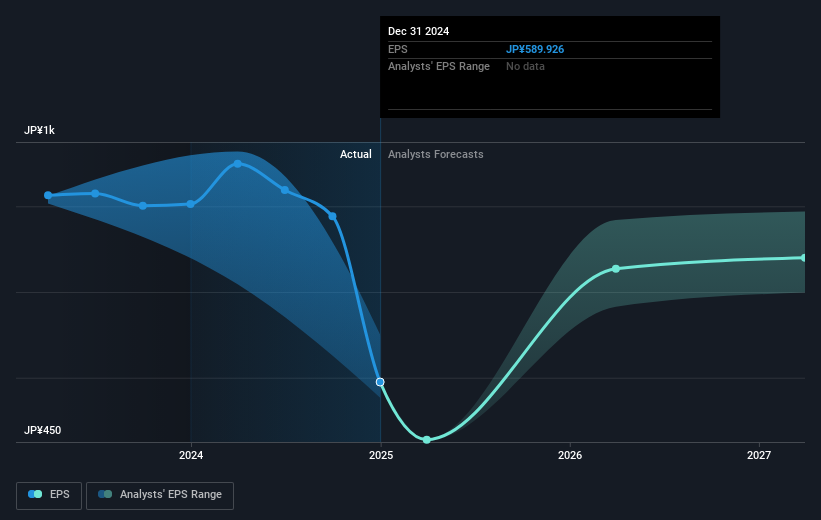- Japan
- /
- Metals and Mining
- /
- TSE:5444
Yamato Kogyo's (TSE:5444) five-year earnings growth trails the enviable shareholder returns

Long term investing can be life changing when you buy and hold the truly great businesses. While the best companies are hard to find, but they can generate massive returns over long periods. To wit, the Yamato Kogyo Co., Ltd. (TSE:5444) share price has soared 358% over five years. And this is just one example of the epic gains achieved by some long term investors. Meanwhile the share price is 3.9% higher than it was a week ago.
Since it's been a strong week for Yamato Kogyo shareholders, let's have a look at trend of the longer term fundamentals.
See our latest analysis for Yamato Kogyo
To quote Buffett, 'Ships will sail around the world but the Flat Earth Society will flourish. There will continue to be wide discrepancies between price and value in the marketplace...' One way to examine how market sentiment has changed over time is to look at the interaction between a company's share price and its earnings per share (EPS).
During five years of share price growth, Yamato Kogyo achieved compound earnings per share (EPS) growth of 17% per year. This EPS growth is lower than the 36% average annual increase in the share price. So it's fair to assume the market has a higher opinion of the business than it did five years ago. And that's hardly shocking given the track record of growth.
You can see how EPS has changed over time in the image below (click on the chart to see the exact values).

Dive deeper into Yamato Kogyo's key metrics by checking this interactive graph of Yamato Kogyo's earnings, revenue and cash flow.
What About Dividends?
It is important to consider the total shareholder return, as well as the share price return, for any given stock. Whereas the share price return only reflects the change in the share price, the TSR includes the value of dividends (assuming they were reinvested) and the benefit of any discounted capital raising or spin-off. So for companies that pay a generous dividend, the TSR is often a lot higher than the share price return. We note that for Yamato Kogyo the TSR over the last 5 years was 480%, which is better than the share price return mentioned above. And there's no prize for guessing that the dividend payments largely explain the divergence!
A Different Perspective
Yamato Kogyo shareholders are up 0.8% for the year (even including dividends). But that return falls short of the market. On the bright side, the longer term returns (running at about 42% a year, over half a decade) look better. It's quite possible the business continues to execute with prowess, even as the share price gains are slowing. It's always interesting to track share price performance over the longer term. But to understand Yamato Kogyo better, we need to consider many other factors. For example, we've discovered 1 warning sign for Yamato Kogyo that you should be aware of before investing here.
If you would prefer to check out another company -- one with potentially superior financials -- then do not miss this free list of companies that have proven they can grow earnings.
Please note, the market returns quoted in this article reflect the market weighted average returns of stocks that currently trade on Japanese exchanges.
New: Manage All Your Stock Portfolios in One Place
We've created the ultimate portfolio companion for stock investors, and it's free.
• Connect an unlimited number of Portfolios and see your total in one currency
• Be alerted to new Warning Signs or Risks via email or mobile
• Track the Fair Value of your stocks
Have feedback on this article? Concerned about the content? Get in touch with us directly. Alternatively, email editorial-team (at) simplywallst.com.
This article by Simply Wall St is general in nature. We provide commentary based on historical data and analyst forecasts only using an unbiased methodology and our articles are not intended to be financial advice. It does not constitute a recommendation to buy or sell any stock, and does not take account of your objectives, or your financial situation. We aim to bring you long-term focused analysis driven by fundamental data. Note that our analysis may not factor in the latest price-sensitive company announcements or qualitative material. Simply Wall St has no position in any stocks mentioned.
About TSE:5444
Yamato Kogyo
Through its subsidiaries, engages in the manufacture and sale of steel products in Japan, and internationally.
Excellent balance sheet established dividend payer.
Market Insights
Community Narratives





